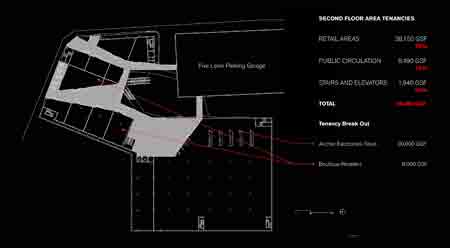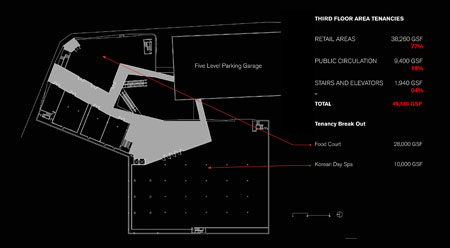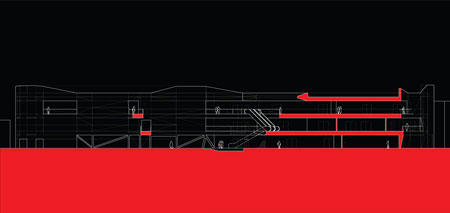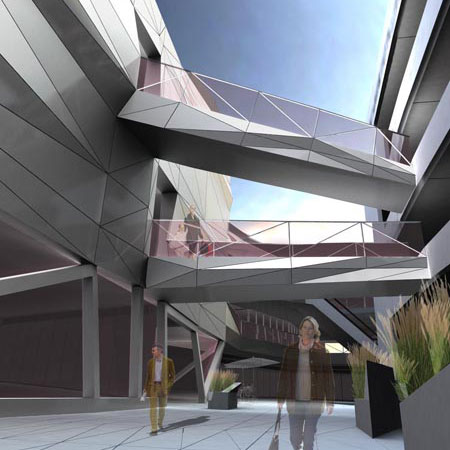
LTSC Project by Zellnerplus
LTSC Project by architects Zellnerplus is a proposed renovation of a shopping mall in downtown Los Angeles.
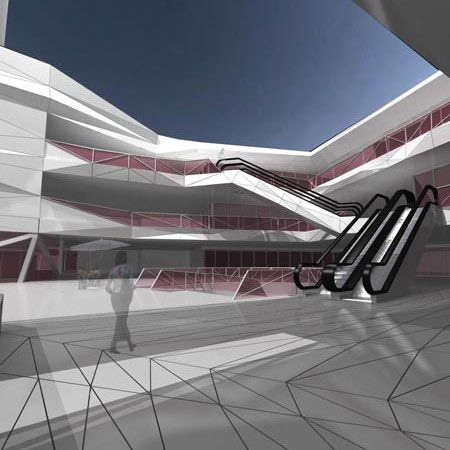
The architects plan to remove part of the roof to create an open air mall, add four bridges between the existing shopping centre and car parks, and clad the building in semi-corrugated aluminium panels.
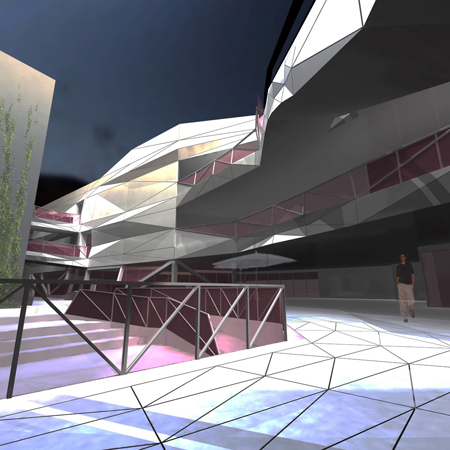
The facade will include new balconies and windows, and will also be shaped to accommodate existing openings.
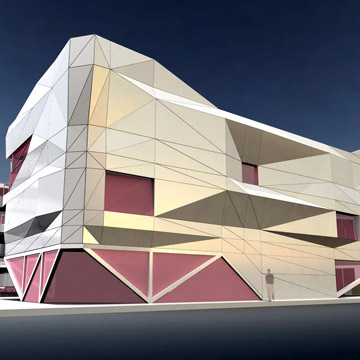
Aluminium panels of the new facade will hang from a steel structure attached to the original building.
The following is from Zellnerplus:
--
LTSC Project Overview
ZELLNERPLUS was invited by a consortium of property developers to provide a strategy and vision for repositioning a nearly thirty year old, concrete masonry 125,000 square foot (11,612 square meter) indoor shopping center in downtown Los Angeles.
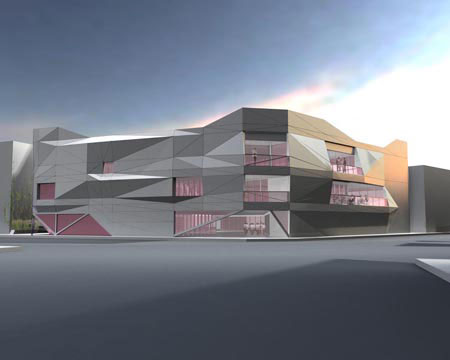
Due to shifts in the demographics of the neighborhood, the shopping center has become largely vacant.
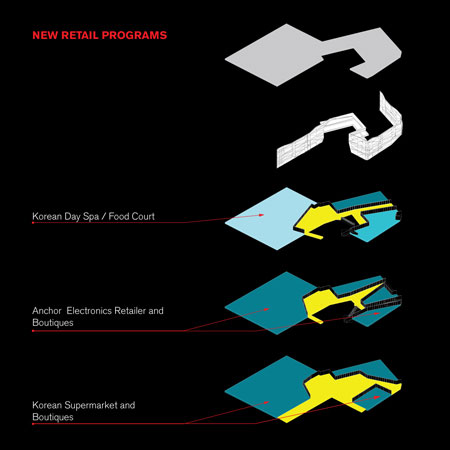
The new owners of the property asked ZELLNERPLUS to develop and illustrate an architectural strategy for improving the market appeal and retail “image” of the property.
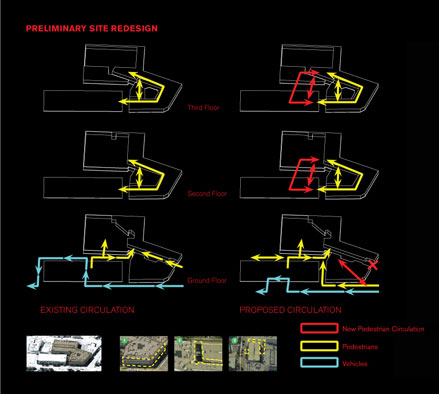
Based on discussions with the shopping center’s new owners, ZELLNERPLUS proposed a renovation of the interior mall, shared outdoor public spaces and an adjacent five level parking structure.
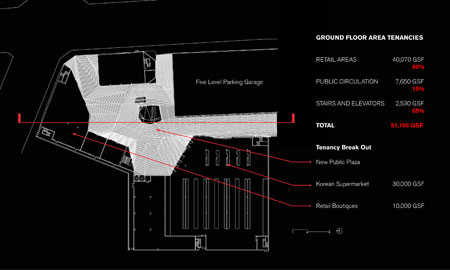
The scheme presented here architecturally re-envisions the shopping center by proposing the following renovations to the property:
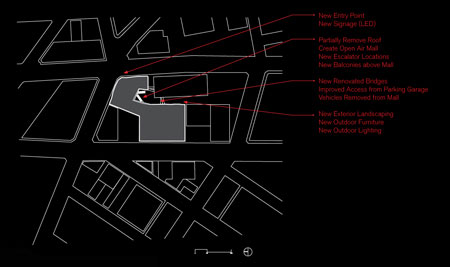
The custom aluminum cladding system is intended to be a cost-effective and completely water permeable new skin for the shopping center.
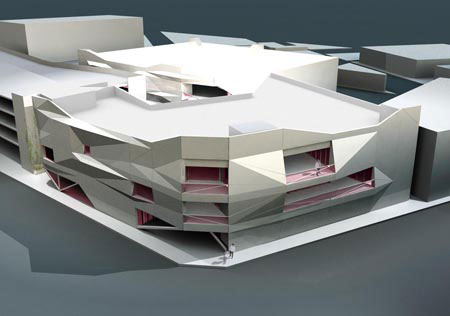
It serves primarily as an expedient means to cover and re-image the existing shopping center’s split-faced CMU infill façade.
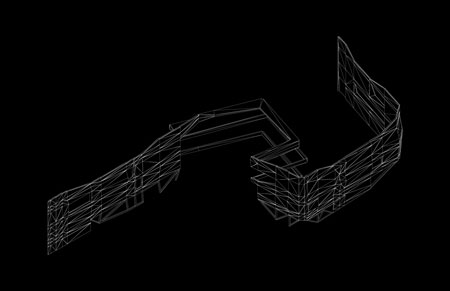
The cladding system is composed of approximately 300 unique and 900 repeated semi-corrugated aluminum panel units hung on a light weight custom steel frame attached to the existing CMU façade.
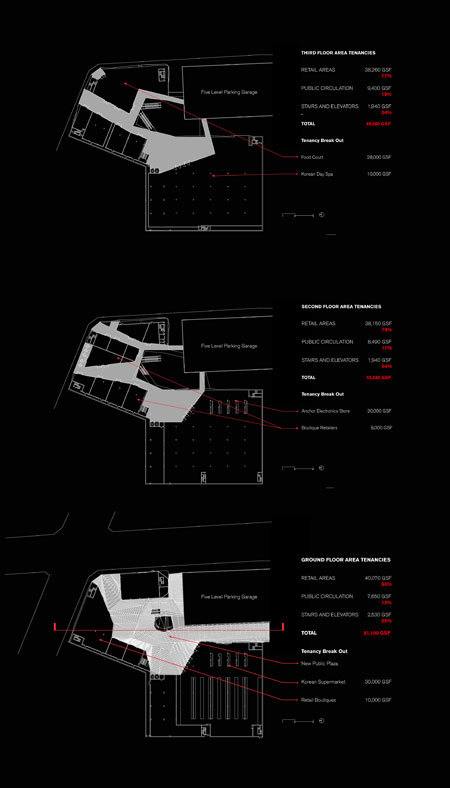
The cladding system’s common geometry is the result of a simple process of compact triangulation applied to the exterior surface and volume of the existing shopping center.
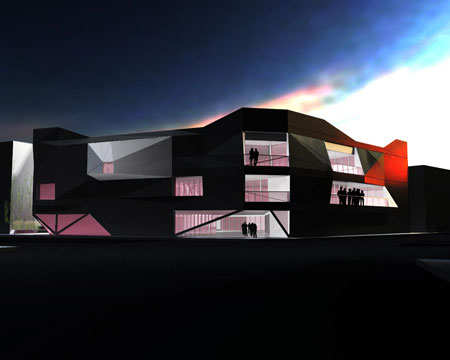
Exceptions for existing openings, existing fire stair volumes, new balconies, new street openings and new entries force the new building skin to bulge or pocket at unique moments.
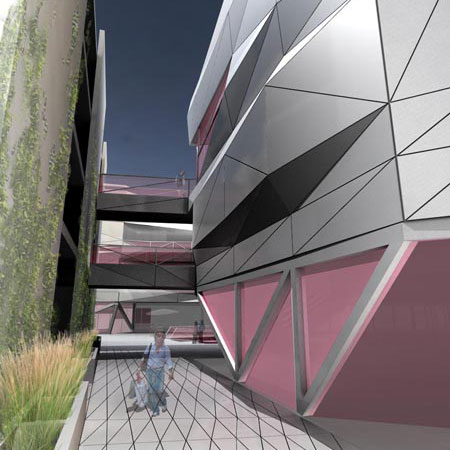
As a result of this process each cluster of triangulated panels responds in concert to these bulging and pocketing pressures- the effect being a variegated but consistent new wrapping for the shopping center.

